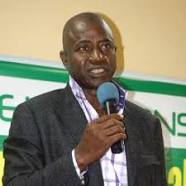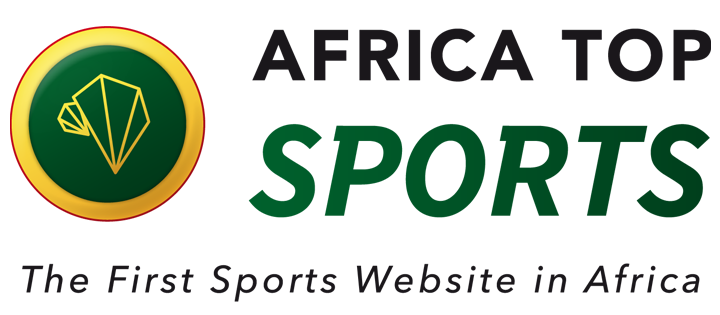 Former Nigeria superstar Segun Odegbami shares his opinion following last weekend’s world cup qualify.
Former Nigeria superstar Segun Odegbami shares his opinion following last weekend’s world cup qualify.Following the results of last weekend’s series of World Cup qualifying matches, Cote d’Ivoire, Ghana, Algeria, Tunisia, Egypt, Burkina Faso, Cameroun, Senegal, Ethiopia and Nigeria have emerged at the final bus stop for the qualification for the 2014 World Cup finals in Rio De Janeiro.
A close look at the 10 teams makes a loud announcement – the original giants of African football are back at the top. That is, the countries that have impacted the most from Africa at the World Cup – Cameroon, Ghana, Cote D’Ivoire, Egypt, Algeria, Tunisia, Senegal and Nigeria!
The only country in that category of traditionally well-established African teams, which narrowly failed in a group that included Cote d’Ivoire, with its constellation of football superstars, is Morocco!
The other outstanding feature of the final list is the authentication of the arrival at the apex of African football of a few new teams – Ethiopia, Burkina Faso and Cape Verde Islands. Although the Cape Verde were disqualified on technical grounds (for fielding an ineligible player) after defeating Tunisia in Tunis, the incredible run of great performances of this tiny African island nation since the run-up to the African Cup of Nations of 2013 has caught the attention and imagination of all.
Ethiopia and Burkina Faso qualified for this last lap on the merit of the results earned through credible performances. With their performance so far in the World Cup qualifiers, both countries have confirmed beyond any doubt that their fantastic outing in the African Cup of Nations in January 2013 was not a fluke. So, as we approach the finish line of the qualifiers, and the hurdles are being erected for the last 10 teams in the continent, the stage is set for the ultimate battles.
In the next few days, the draws to determine how the 10 teams will play against one another in a two-legged series of final matches, with the winner in each of the matches qualifying automatically, as one of the five African representatives, will be conducted. The matches will take place in October and November 2013. Each match will be a fight-to-finish, mostly between long-standing rivals of African football. Even the prospect of the draws has become exciting drama for football analysts.
Nigeria – The Dark Horse Of The World Cup
As we expect that, let me look briefly at the Nigerian team and its prospects at the final hurdle. To most Nigerians, this time it would not really matter which of Egypt, Burkina Faso, Cameroun, Senegal and Ethiopia is drawn against the Super Eagles. The team simply looks too strong and unbeatable this time around in Africa. The mere mention of their name evokes dread and fear for most teams.
That Nigeria won its matches and qualified from its group with relative ease and hardly any real threat bear testimony. Even the Manager of the team, Stephen Keshi sounded that confident. That may also become its handicap.
Twice in recent times, we have seen the Nigerian team allow their confidence to degenerate to overconfidence and arrogance. The first time was when the team met Tahiti during the last Confederations Cup. The weakness of the Tahitian opposition became a platform to showoff. The Eagles started to play to the gallery instead of concentrating and doing as much damage as possible. The team indirectly paid for that complacency. Last weekend against Malawi in Calabar, Nigeria, with two goals in their kitty and playing with one man extra following the dismissal of a Malawian player, Eagles playmaker, Victor Moses, started showboating. It was unbelievable that a player of his status and experience would ignite such unprofessional, condescending and undisciplined display.
Unchallenged at a point, with over half an hour of the game left, he lifted the ball in the air and started to juggle it across the field to the consternation of even his own team mates. Whilst the spectators may have enjoyed that momentary display of arrogance, he ‘sold’ a dangerous message to his colleagues that the match was over and it was time to entertain the crowd. With over 30 minutes left in the game? For God’s sake no match is won or lost until the final whistle is blown, particularly not a World Cup qualifying match, with 30 minutes to go, and anything could have happened to alter the tide of the game.
It is surprising that after the experience of the Confederations Cup any Eagle would put up such a childish, demeaning display. It was not surprising when a few minutes after that he was substituted. I hope that not only did he get the point but that Stephen Keshi must also have told him off after the game.
To make matters even worse, the Super Eagles could not add to the score-line after that act, nor did their performance even improve playing against a team with one man short and two goals down. One moment of madness can change the fate or fortune of any team.
The Eagles have shown that they are the team to beat in Africa. They must concentrate, however, every second of every game to be able to deliver at the highest level of the game. That’s what the experience of the 2013 Confederations Cup should have taught them. My friend, renowned football statistician, co-author of the authoritative book on football titled, ‘The Secret Life of Football’, Peter Law, opened my eyes to an interesting aspect of the new Super Eagles. We met at my book presentation last week in London. Amongst several things he had to say about the Nigerian team, the main one is that Nigeria needs a ‘Rashidi Yekini’ in its present line-up. That, he says, is the missing ingredient in the team.
Peter asked if I had been keeping a tally of the number of created chances and the number of lost, good, goal-scoring opportunities by the Eagles. Emenike is the only one that looks like the answer but he too has only played a few matches due to injuries.
These are some of his thoughts: The Eagles are a difficult team to play against because of the very strong, powerfully built andathletic players. The defense, even as vulnerable as it sometimes looks, has been impregnable for most teams. Stephen Keshi is building a strong unit, emphasizing the team rather than the individuals, even as a few players have expressed individualistic propensity (Victor Moses in particular).
Do I realize, for example, that in the World Cup qualifiers, the Super Eagles in six matches scored seven goals and no single player scored more than one goal?
The Super Eagles are a very strong, very difficult-to-play-against team with some of the strongest, fastest and most athletic players in the continent, but the team lacks the finishing power to crown its potentials and make it great and able to compete against the best teams in the world.
Keshi still has a few months to put finishing touch to his evolving team and with any luck and hard work, the Eagles may emerge as the real dark horse of the 2014 World Cup.


